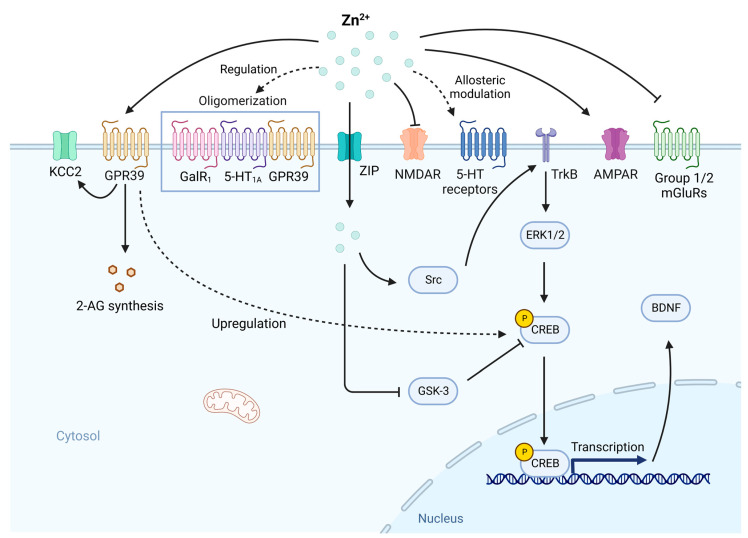Figure 3.
The involvement of Zn2+ deficiency in the abnormal neurotransmission and neurotropic signaling in depression. In normal conditions, the activities of glutamatergic receptors including NMDAR and α-amino-3-hydroxy-5-methyl-4-isoxazole propionic acid receptor (AMPAR) need to be regulated by Zn2+. The activation of GPR39 by Zn2+ is essential for endocannabinoid 2-arachidonoylglycerol (2-AG) synthesis and the upregulation of potassium chloride co-transporter 2 (KCC2). GPR39 activation can upregulate cAMP response element binding protein (CREB) expression, thus increase BDNF expression. Zn2+ is involved in the allosteric modulation of 5-HT receptors and regulation of the oligomerization state between GalR1-5-HTA1-GPR39. Zn2+ is also an antagonist of groupⅠand group Ⅱ mGluRs, which are linked to depression. While intracellular Zn2+ participates in the modulation of neurotropic signaling, which is crucial in depression. Zn2+ can transactivate TrkB and downstream ERK1/2 and CREB via Src family kinase, on the other hand, inhibit glycogen synthase kinase-3 (GSK-3), which inhibits CREB activity, leading to the expression of BDNF. Under Zn2+ deficiency, these activities associated with depression are disrupted, contributing to the development of depression. Created with BioRender.com. Adapted from “Drosophila Toll Pathway”, by BioRender.com (2023). Retrieved from https://app.biorender.com/biorender-templates (accessed on 17 February 2023).

